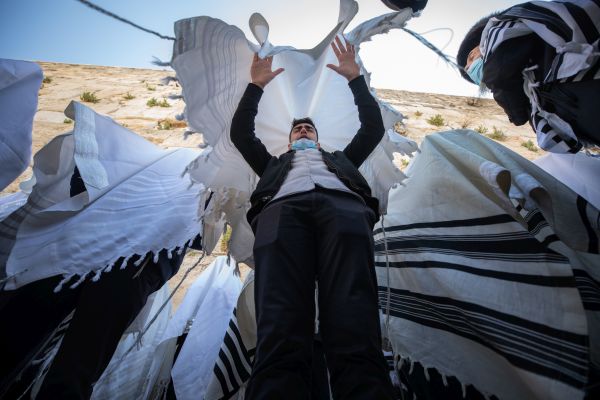How are we supposed to treat Kohanim and Levites nowadays?
By Rabbi Ari Enkin, Rabbinic Director, United with Israel
This week’s Torah portion in Israel is “Bamidbar” (Numbers 1:1 – 4:20) and in it we read about the census of the Jewish people and the delegation of various groups’ roles and responsibilities.
The Kohanim (Priests) are considered to be the holiest group – the highest class. They ran the service in Tabernacle and later in the Holy Temple in Jerusalem.
The Levites are second on the totem pole and were assistants to the Kohanim. They would transport the holy vessels and perform various other functions in the Temple.
The third group, known as “Israelites”, are commoners who did not perform any of the above holy tasks.
The word “Kohen” is the Hebrew word for “priest“ and it refers to those of patrilineal descent from Aaron, the brother of Moses. In the Temple, the Kohanim performed the daily and holiday service, most notably, the sacrificial offerings. Although there is no Temple nowadays, the Kohanim still play a unique role in the synagogue, as we will soon see.
The Levites, those who descended from Levi, the son of Jacob, performed a variety of other Temple roles. They would slaughter many of the offerings and were responsible for the singing and musical accompaniment that was a part of the service in the Temple. They also served as Temple guards and were responsible for the holy vessels.
God’s “original intention” was that the firstborns be the ones to serve in the role of Kohanin. But they blew it when they joined in the Golden Calf fiasco. God punished them by taking away the priesthood privileges and giving it to the descendants of Aaron instead.
It is interesting to note that the only descendant of Aaron to become a Kohen after already being born was Phineas. This was as a reward for Phineas having killed a Jew and a Midianite princess who were brazenly sinning.
Nowadays, a Kohen is honored with being called to the Torah first whenever it is read, generally Monday, Thursday, Shabbat and holidays. A Levite is honored with being called to the Torah second. The remaining honors (there are generally 3-8 such honors), known as “aliyot,” are given to everyone else – the “Israelites”.
If there is no Kohen present in the synagogue when the Torah is read, the honor of the first aliyah is often given to a Levite although this is not truly required.
The Kohanim also perform the priestly blessing in the synagogue. In Israel, this is done daily, or at least on Shabbat, while outside of Israel it is generally only done on holidays. The Levites of the congregation wash the Kohanim’s hands before they perform the blessing to remind us how the Levites would assist the Kohanim in the Holy Temple. Finally, the “Pidyon Haben,” redemption of the firstborn ceremony, is led by a Kohen.
A Kohen is also often honored with leading public events and prayers, such as to open a feast by making the blessing on bread or to end it a feast by leading the grace after meals.
Indeed, some take the mitzva of honoring a Kohen so far as to allow a kohen to go to the head of the line when waiting in line in a store, or giving a driving Kohen the right of way on the roads, and the like.
While such acts aren’t obligatory, they are commendable. This is based on the verse “You shall sanctify the Kohen” and anything we do towards this end is commendable.
There is some discussion whether there is a requirement to show such honors to a Levite, as well. The consensus here, too, is that there is no true obligation to do so, though it is commendable.
Kohanim have strict rule on who they can marry. A Kohen cannot marry a divorcee or a woman who was once intimate with a non-Jew. The children of a Kohen who marries a woman forbidden to him lose their Kohen status.
Three times a day we pray to God that the Temple be rebuilt, and the service be restored. May we see it realized in our days!
Do You Love Israel? Make a Donation - Show Your Support!
Donate to vital charities that help protect Israeli citizens and inspire millions around the world to support Israel too!
Now more than ever, Israel needs your help to fight and win the war -- including on the battlefield of public opinion.
Antisemitism, anti-Israel bias and boycotts are out of control. Israel's enemies are inciting terror and violence against innocent Israelis and Jews around the world. Help us fight back!
